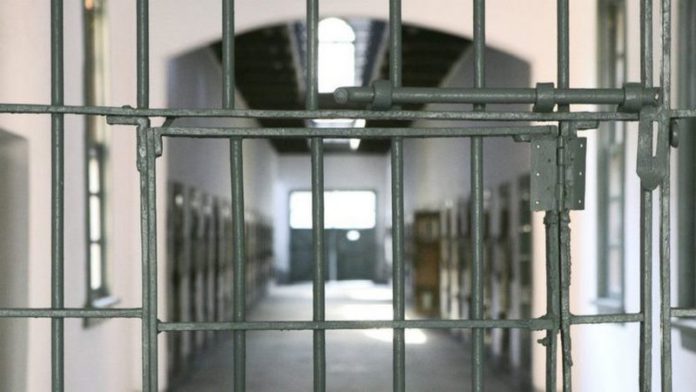A former prisoner has lifted the lid on what happens when someone dies in jail.
Some people believe that prisoners don’t necessarily get the same ‘death-rights’ as those who aren’t locked up.
In a nutshell, it all depends on the circumstance of the situation, and it’s important to note that every prison is different.
American YouTuber Jessica Kent struggled with addiction for 10 years, and was in and out of prison during this time.
In a video, she sheds some light on what actually happens when someone dies inside in the USA, regardless of whether they have a family or not.
She explained: “Usually, you will call the prison and the chaplain will come and see you and tell you that your family member has passed away.
“They will ask you if you need anyone to talk to and tell you that they are here for you.”
When talking about other prisoners attending funerals, Jessica explained that this is called ‘furlough’ to go to a funeral.
She added: “I’ve never seen it. I know people are going to say in the comment section that they got to go to a funeral, but I’ve never personally seen that myself.
“The first thing that’s going to happen is the inmates typically tell the correctional officers that a person is not okay.
“The correctional officers will then lock down the unit, then the nurse and a lot of staff members will assess the situation.”
She continued: “Typically they will take you out in a stretcher, and if you have passed, they will put you in a black bag.
“You’ll be taken to the nearest hospital/morgue depending on the situation at which point the family is notified and they can claim your body and begin funeral planning.”
For those who don’t have a family, Kent explains that it’s pretty much the same process.
Jessica said: “Where do you go? Well, most prisons have a graveyard, and it is the most depressing thing I could ever explain to you.
“If you have no family, the prison will put your body in a very cheap, sad box, it’s barely a coffin.
![A prisoners cause of death will be determined by a coroner if it is sudden, violent or unnatural [stock image]](https://i2-prod.mirror.co.uk/news/uk-news/article25405645.ece/ALTERNATES/s338a/0_GettyImages-905706252-1.jpg)
“So, even in death, you’re still in a prison. You don’t always even get a name on the tombstone, just the inmate number.”
Jessica found that in her prison, a couple of staff members and a chaplain would give the individual a burial if they didn’t have a family.
She continued: “I have seen people pass away in prison, and I never knew what happened to them and if they had family or not.
“I did see one elderly woman who had no family, and was told by a staff member she was buried at the prison.
“It broke my heart as she was so kind, like everyone’s grandma, and that was a really sad situation.”
In England and Wales a coroner is appointed to conduct an inquest following the reporting of a death to determine the actual cause if it has been a violent or sudden death.
Despite many believing otherwise, a prisoner still has a right to plan and decide what they want to happen at their funeral.
As seen in funeral director Death IO’s blog, in some cases, the prison service can even help with some of the cost.
A family liaison officer will also help a prisoner arrange a funeral, and on some occasions, they may even attend.
For a separate memorial, the chaplain will give other prisoners a chance to say goodbye during a separate service.
Kent concluded: “Most people in prison have a release date, some people don’t, some pass away young, some pass away old.
“Death is a real part of prison life.”

